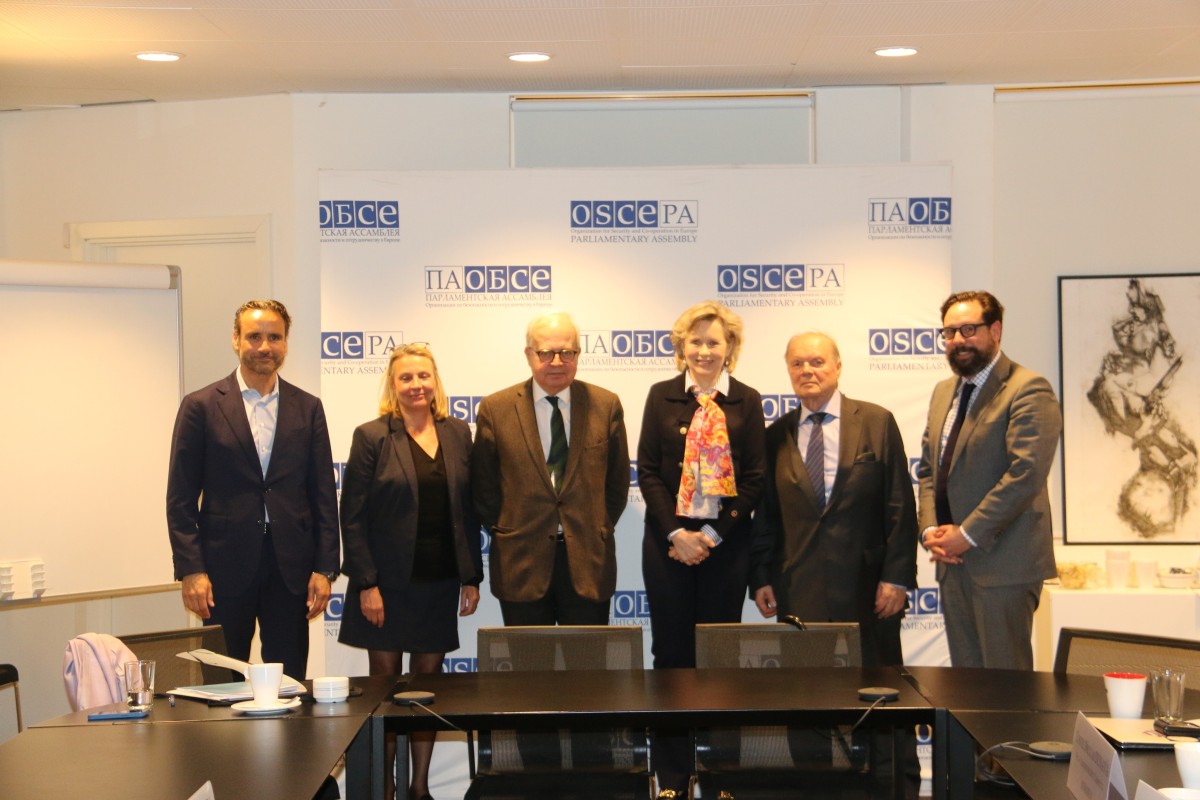Sponsored Content
OSCE Court of Conciliation and Arbitration: Promoting Peaceful Dispute Resolution
The OSCE Court of Arbitration is an important institution within the Organization for Security and Cooperation in Europe (OSCE), and recently the President and Vice-President of the OSCE Court met with the leaders of the OSCE Parliamentary Assembly to further strengthen it. But what is the OSCE Court of Arbitration and why is it important?
 PA Secretary-General Roberto Montella, Christa Allot, OSCE Court Executive Officer, OSCE Court President Emmanuel Decaux, PA President Margareta Cederfelt, OSCE Court Vice-President Erkki Kourula, and Deputy Secretary General Gustavo Pallares (f.l.t.r.). / Picture: © OSCE / Nat Perry/ID 542367, (CC BY-ND 4.0)
PA Secretary-General Roberto Montella, Christa Allot, OSCE Court Executive Officer, OSCE Court President Emmanuel Decaux, PA President Margareta Cederfelt, OSCE Court Vice-President Erkki Kourula, and Deputy Secretary General Gustavo Pallares (f.l.t.r.). / Picture: © OSCE / Nat Perry/ID 542367, (CC BY-ND 4.0)
President Decaux and Vice-President Kourula of the OSCE Court of Conciliation and Arbitration held a presentation at the OSCE Parliamentary Assembly's International Secretariat in Copenhagen on 25 April. The presentation focused on the Court's features and its role in promoting peaceful dispute settlement between states.
Attendees included the President of the OSCE PA, Margareta…
or Log In
Fast News Search





